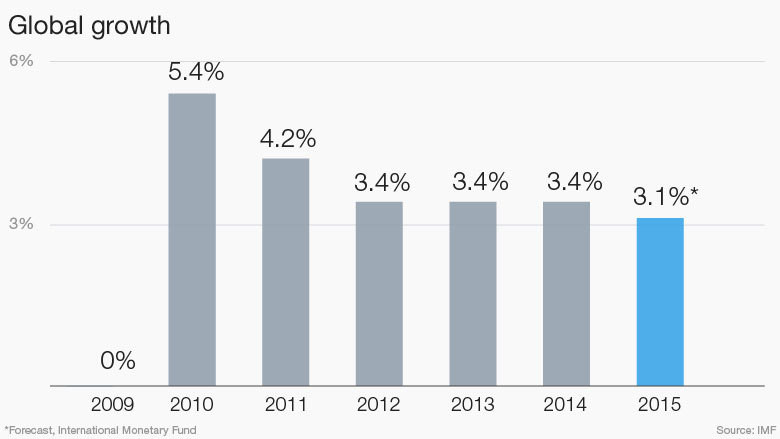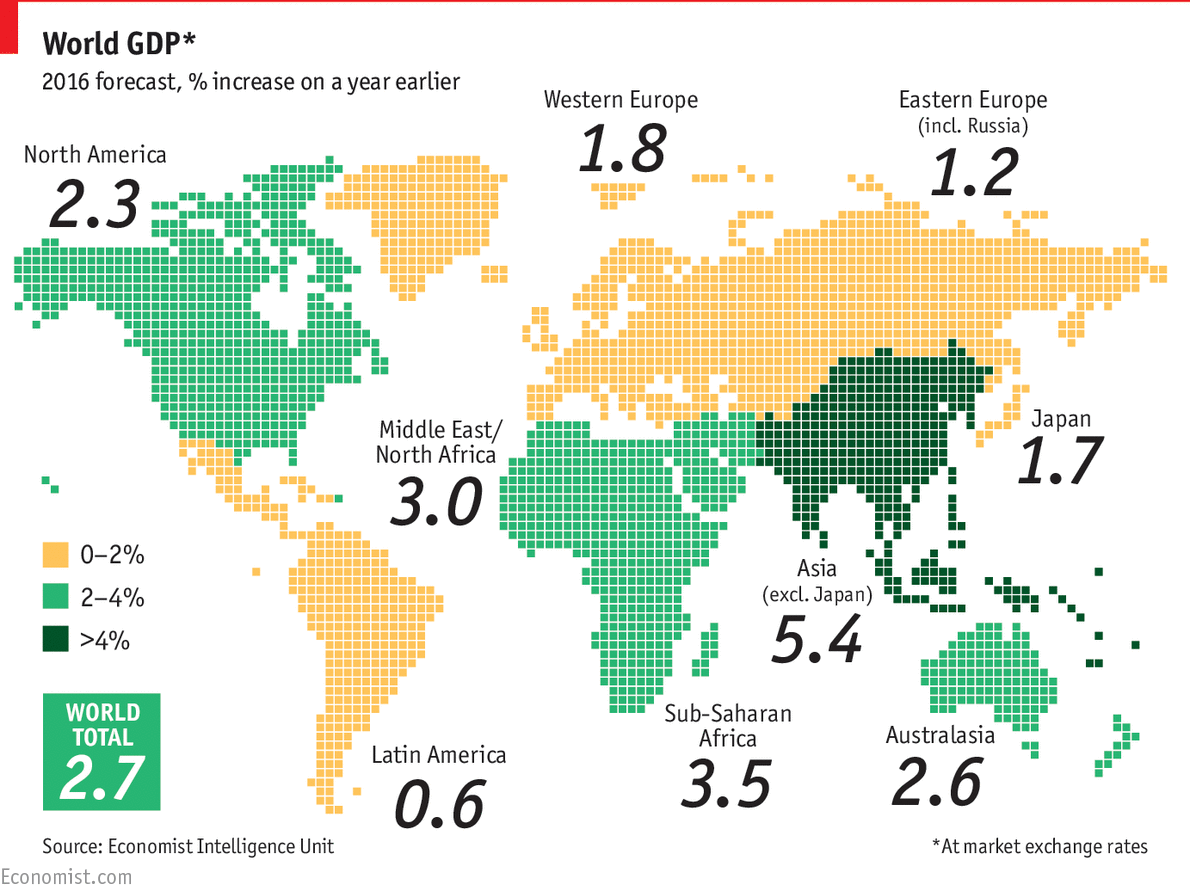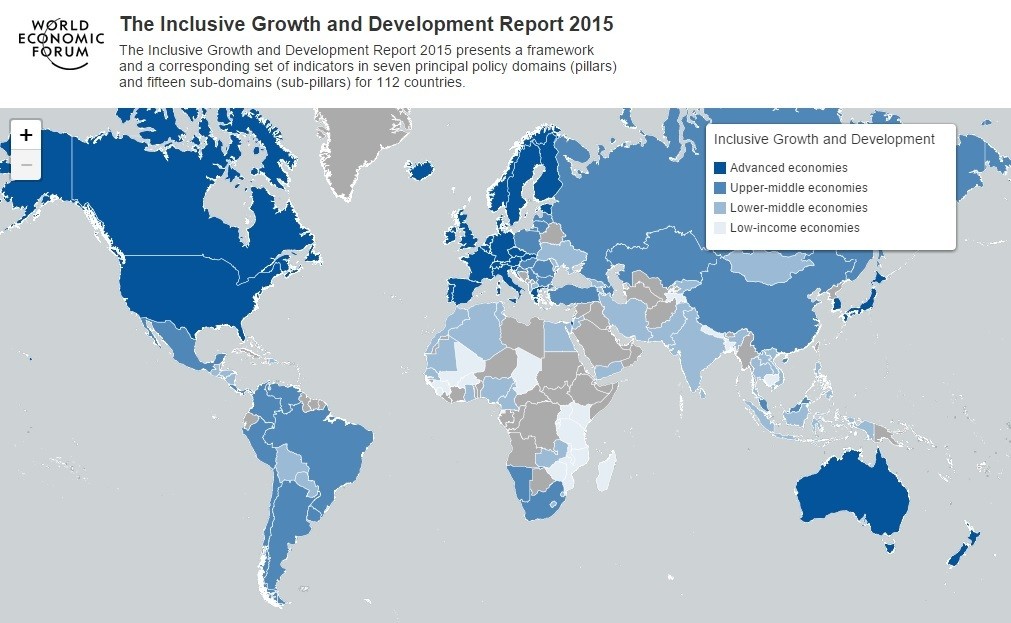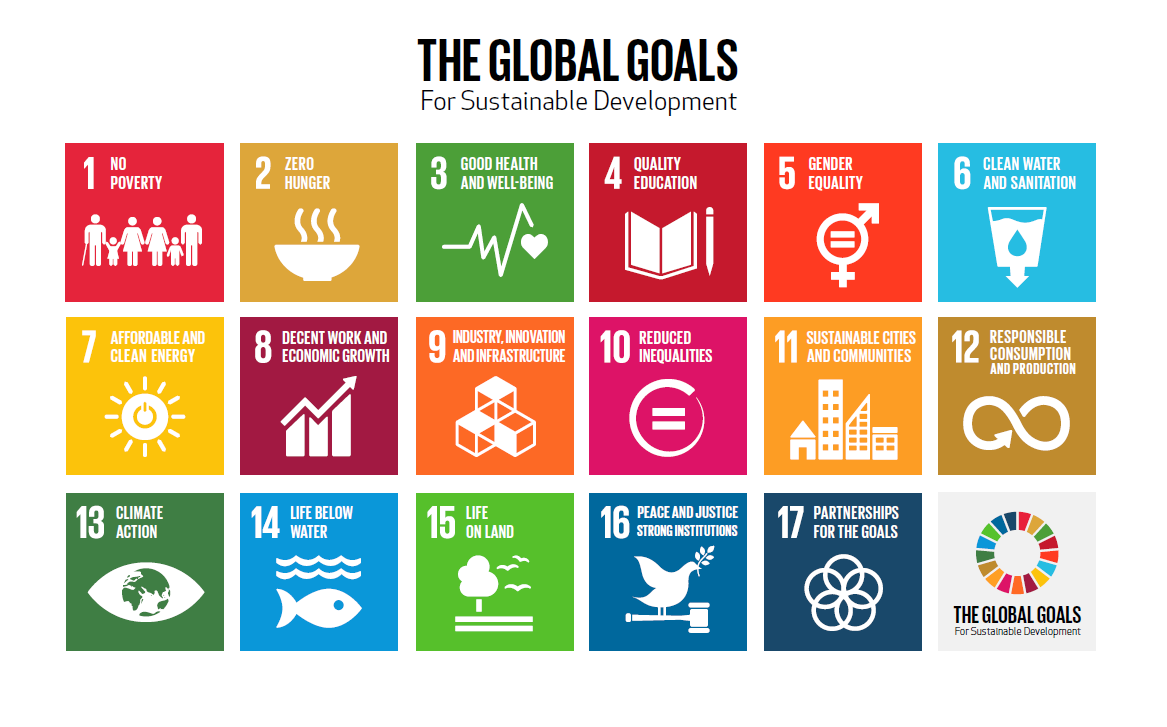Why does inclusive growth matter?

Out of balance ... do our current systems exacerbate inequalities? Image: REUTERS/Finbarr O'Reilly

Get involved with our crowdsourced digital platform to deliver impact at scale
Stay up to date:
Davos Agenda
In the wake of the global financial crisis, growth has been elusive and many economies are still battling weak demand, stubborn unemployment and rising levels of inequality. In the last few years, global GDP has averaged around 3.5%, and the IMF forecasts growth of 3.1% this year. The World Bank cut its global growth projection to 2.9% in 2016 from its estimate of 3.3% in June.
But the challenge here isn't just about reviving global economic growth – it's also about doing it in a way that is more inclusive than in the recent past. In order to boost growth and counter the slowdown in emerging markets, we need to step up efforts around the world to accelerate economic activity and to ensure that its benefits reach everybody in society.


Isn’t simple growth enough?
The push for economic growth in recent decades has led to substantial increases in wealth for large numbers of people across the globe. But despite huge gains in global economic output, there is evidence that our current social, political and economic systems are exacerbating inequalities, rather than reducing them.
A growing body of research also suggests that rising income inequality is the cause of economic and social ills, ranging from low consumption to social and political unrest, and is damaging to our future economic well-being.
While it is becoming clear that economic growth must also deliver broad-based improvements in living standards, there is little in the way of concrete policy guidance on how to achieve this goal.

Is this something governments can fix?
There are certainly important changes governments can make to promote more inclusive growth. Rather than relying on GDP as the most important measure of success, broad-based progress in living standards should be the bottom-line measure of national economic performance.
The wider the "dashboard" of indicators, the more policy-makers can get a true picture of how the benefits of growth are being shared.
But if real and meaningful progress is to be made on this issue, it has to be addressed by governments and by business. It is both a public and a private sector issue and one will not be able to bring about change without the other.
What’s being done about it?
The United Nations Sustainable Development Goals, announced in 2015, present a set of targets for 2030 that expand on the original Millennium Development Goals for eliminating poverty. Many of the objectives touch on inclusive growth and social inclusion.
Goal 8 specifically aims to promote inclusive and sustainable economic growth. Goal 10 targets reduced inequality within countries and among countries.

One of the unique aspects of the Global Goals is that they are targeted at governments, the private sector and civil society. While this is an extremely important milestone, again little in the way of policy guidance has emerged and there remains no internationally recognized policy framework for countries wishing to construct a more socially inclusive economic strategy.
What is the World Economic Forum doing about it?
The Global Challenge Initiative on Economic Growth and Social Inclusion provides an opportunity for those involved to develop and champion solutions to this issue. It looks at practical ideas that stimulate both growth and inclusion. This means looking at the issue through a wider lens, beyond the things that finance and trade ministers are traditionally most concerned with.
The Forum's Global Competitiveness Report has been fuelling debate on growth since 1979, and September 2015 saw the launch of the inaugural Inclusive Growth and Development Report. This presents a framework of measurable indicators across seven policy areas, each of which supports broad-based progress in living standards and allows countries to understand their strengths relative to others.
Click here for more information on the Forum's Global Challenge on Economic Growth and Social Inclusion.
Don't miss any update on this topic
Create a free account and access your personalized content collection with our latest publications and analyses.
License and Republishing
World Economic Forum articles may be republished in accordance with the Creative Commons Attribution-NonCommercial-NoDerivatives 4.0 International Public License, and in accordance with our Terms of Use.
The views expressed in this article are those of the author alone and not the World Economic Forum.
Related topics:
The Agenda Weekly
A weekly update of the most important issues driving the global agenda
You can unsubscribe at any time using the link in our emails. For more details, review our privacy policy.
More on Forum InstitutionalSee all
Minwoong (Eric) Hwang
July 25, 2024
Kate Whiting
July 23, 2024
Gayle Markovitz
June 28, 2024
Gayle Markovitz
June 26, 2024






